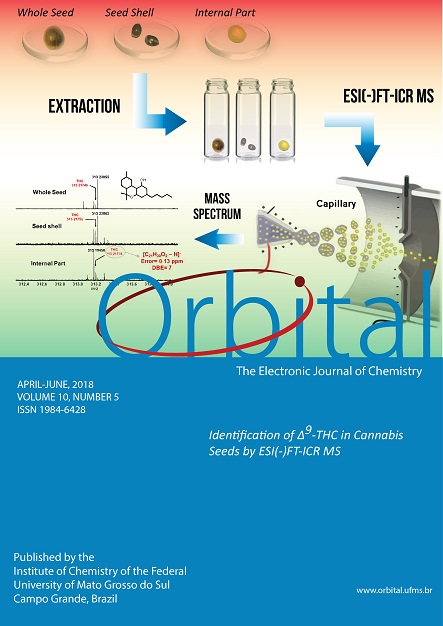Niobium Compounds in Transesterification Reactions of Soybean Oil: A Promising Use of NbCl5
Published 2018-06-30
Keywords
- biodiesel,
- heterogeneous catalyst,
- niobium compounds,
- transesterification
How to Cite
Abstract
In heterogeneous catalysis, many transition metals and its derivatives, such as titanium and iron, have been vastly studied as nanoscale catalysts, but little is known about the use of niobium compounds. Being biodegradable and renewable, biodiesel contribute to the independence from oil and environment protection. In this work we have used different niobium compounds NbCl5, C4H4NNbO9.xH2O, NbPO4 and Nb2O5 synthetized by sol-gel technique with high surface area and with different crystalline structures (amorphous and nano crystalline), as a heterogeneous catalyst in biodiesel synthesis from commercial soybean oil. The commercial and the synthesized niobium oxide were used checking the effect of morphology and acidity presented in the yield of biodiesel synthesis. The results obtained were compared these results with the use of amorphous niobium oxide and another oxide catalyst. The biodiesel obtained was characterized by gas chromatography system equipped with a FID detector. NbCl5 has presented the best yields of conversion among the other niobium derivatives and potential application in Biodiesel synthesis.

